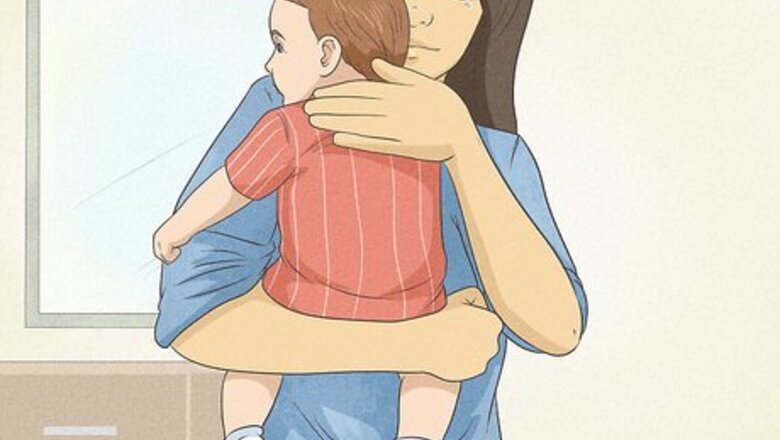
views
Burping Over the Shoulder
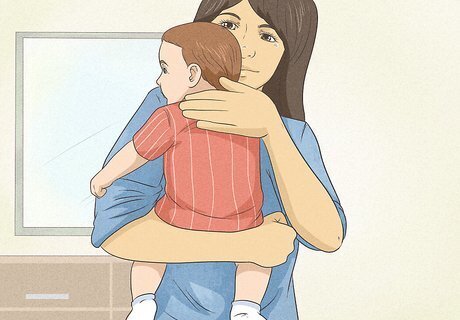
Hold the baby over your shoulder. Be sure to support your child's head and neck while you do this. You might have more success lifting your baby higher, so that his or her belly is resting on your shoulder. You might want to put a burping cloth over your shoulder, especially if the child is under a year old. The bottom of their esophagus (the tube that brings food into the stomach) is not all the way developed and may be briefly sent out of whack when the baby burps. This sometimes causes them to spit up, but is perfectly natural.
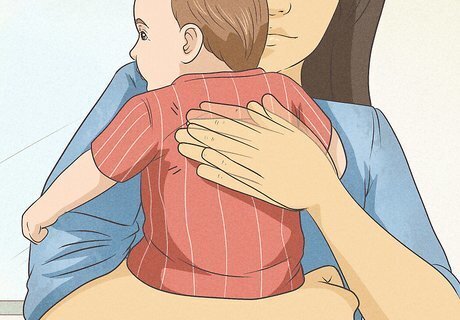
Pat them between the shoulder blades. Do this very gently. You should only pat them using wrist action; do not move your arm in order to burp your baby. If you don't want to pat your baby, you can also rub his or her back using a circular motion with your hand. Although a bit less effective, it often accomplishes the same thing.
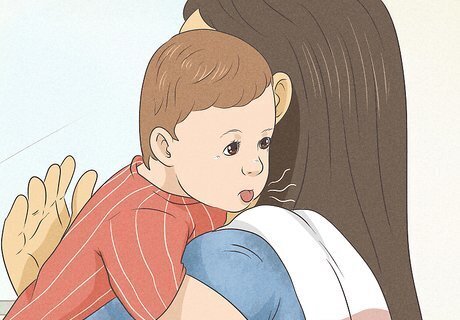
Know when the baby burped, and stop patting. It might sound like a normal burp, and if it does, you know to stop. Otherwise, it could sound like a sneeze, a grunt, or just a brief, "Ump."
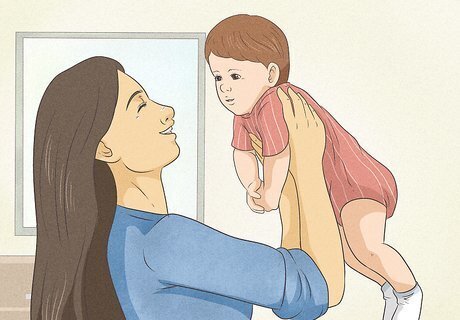
Put them in front of you as soon as they burp, and show them your smiling face. Establish your presence again and give your baby a kiss.
Burping Sitting up
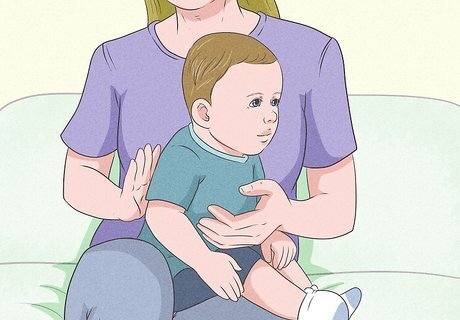
Rest your baby on your thigh in a sitting position. As you do this, be sure to support your baby's head and neck. If you so choose, place a burp cloth over your and your baby's thighs to catch any spit. Support your baby's front chest with your hands and their neck and head with your fingers. This will make sure that your baby is in a secure position and their upper extremities are supported at all times.
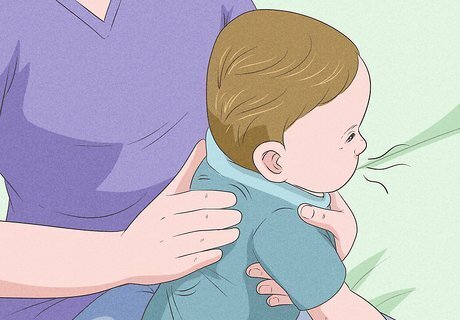
Pat, rub, or lightly bounce your baby until he or she burps. There are several ways you can try to elicit a burp from your baby, although it might take several minutes until they need to. They include: Patting. Pat very lightly, using mostly wrist action, not the full force of your arm. Rubbing. Rub using circular motions. Bouncing. Lightly bounce your baby making sure that his or her neck is fully supported.
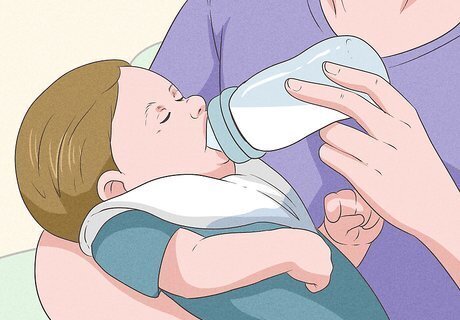
Finish feeding your baby after they burp. Your baby may struggle to burp once, or may burp several times in the course of a feeding. It all depends on their individual constitutions.
Burping Lying Down
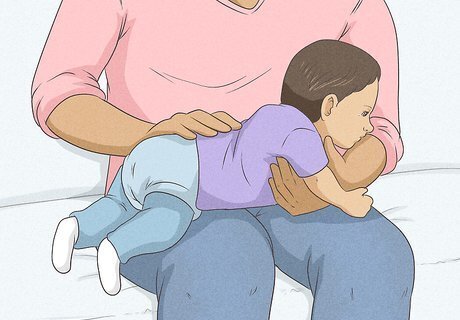
Lay the baby down with their belly over your thigh and their neck and head above their body. Remember to support their neck and head with a hand on their chest in order to keep it stabilized.
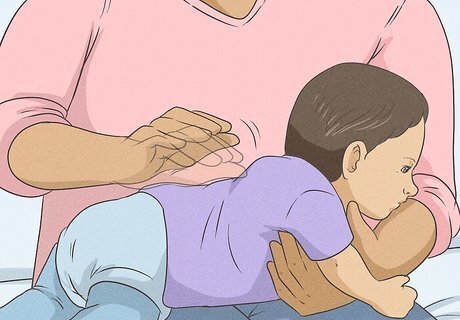
Pat or rub the baby until a burp comes out. Again, this may take several minutes; it may be instantaneous. It all depends on the child. Not every feeding needs to elicit a burp, but if your baby is writhing or uncomfortable, they may need it in order to continue feeding.
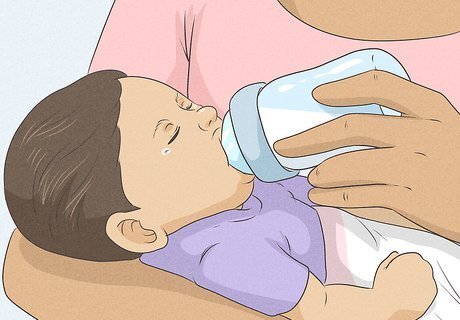
Finish feeding your baby after they burp. Your baby may struggle to burp once, or may burp several times in the course of a feeding. It all depends on their individual constitutions.
Making the Burping Process Easier
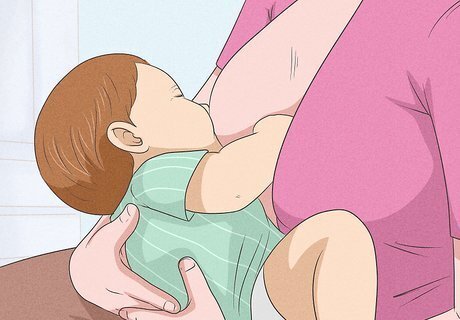
Try to breastfeed, not bottle-feed. Breastfeeding is an easier way to avoid the need to burp, as the flow of milk is much more restricted. Bottle-feeding often forces the babies to gulp air along with the milk.
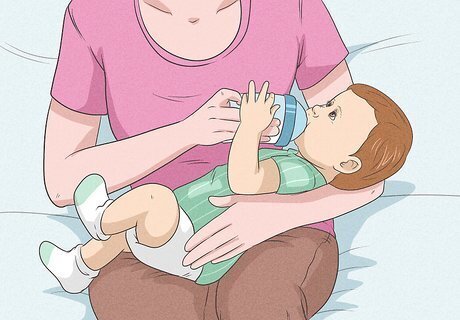
Feed the baby in a (more or less) upright position. Hold your baby at a 45° angle when breast- or bottle-feeding. This lowers the chance that the baby will need to burp by positioning the baby in an easier position to swallow.
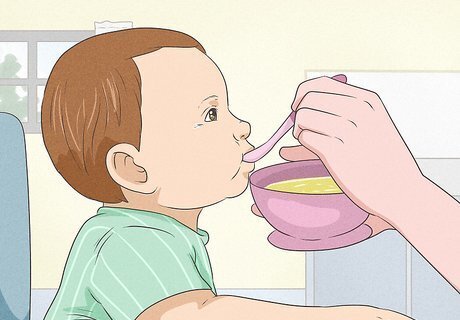
Aim for frequent, lighter feedings. Long, heavy feedings present a higher chance of letting the baby gulp in excess air. Try to keep the feedings light and frequent instead.
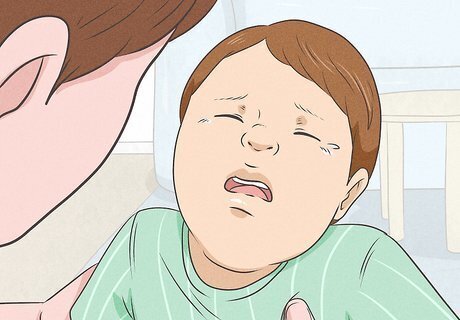
Get feedback from your baby about whether they need to burp. In between suckling, look at your baby and try to gauge their comfort level. An uncomfortable grimace on your baby's otherwise pleasant lips may mean that she needs to burp. If the baby relaxes her face again and seems content, the urge to burp has probably passed.
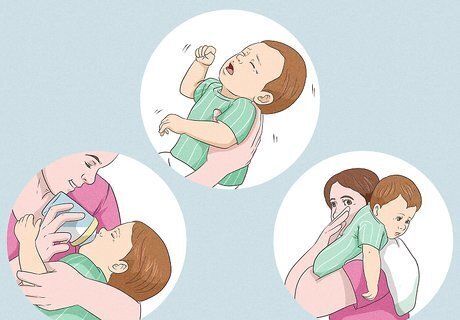
Know that not every feeding is accompanied by burping. Some babies burp more than others, and even then, there will come times when your otherwise burp-happy baby won't need to burp. As your baby grows older, their ability to self-regulate will improve and their need to burp will fade.













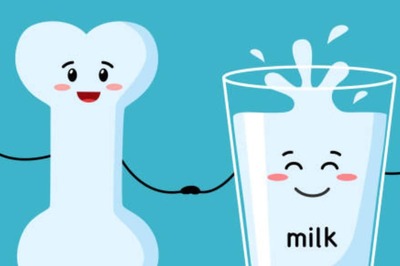





Comments
0 comment